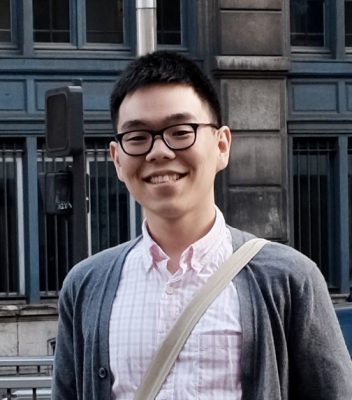Student Spotlight: Stephen Kim

What is your area of research?
I am a Ph.D. candidate in English with minor fields in feminist, gender, and sexuality studies and science and technology studies. My research seeks to help develop a vocabulary for discussing race in texts from Renaissance England. This project is tricky because much of what we know and think about race is beholden to 20th and 21st century contexts, so my work involves thinking about how contemporary theories of race both illuminate and occlude our understanding of the racial imaginary in Renaissance England. This project also involves looking into the variety of ways scholars in the humanities discuss race currently and figuring out what the benefits and limits of each methodology are. What can we gain through the historiography of science that might not be as apparent through critical race theory and vice versa? What happens when we put postcolonial scholarship in conversation with work in ethnic studies?
What inspired you to choose this field of study?
I’m inspired to think about race in Renaissance England because it’s a tumultuous time in terms of racial thinking: On one end of the period is 1492, the “discovery” of the “New World,” and on the other end, we have the proliferation of the Atlantic slave trade. I look specifically through the lens of literary studies because the discipline cares deeply not only about what is said but how it is said. I’m interested in what words, concepts, and symbols were aligning in Renaissance England that set the stage for the racial thinking that permeates today’s discourse.
Why is this research important?
This research is important to me for two reasons: First, it allows me to tackle the cultural lodestones of white supremacy head on. It’s of no surprise to anyone that today’s readers would find much of the literature of Renaissance England racist. I’m interested in how it’s racist, especially considering the understandings of race in today’s moment and in Renaissance England are so different. And because of the formative cultural influence Renaissance England has had (for better or for worse) over the Western imaginary, the how’s of racial thinking then are likely working into the racial thinking we have today. Second, my project pushes me to think more about how we can use history and language in ethically and politically responsible ways when thinking about social identity, privilege, and oppression. Which connections between the past and the present are generative, and which are reductive? How can these connections be useful to us in thinking about solidarity and resistance?
How do you integrate research into your teaching or vice versa?
The biggest challenge I’ve had in my research and my teaching is finding words to communicate difficult ideas and concepts. Talking about race is complex, especially because of the ways it intersects with other identity categories (gender, sexuality, ability, class, to name a few). How do I find the words to talk about race well? This challenge of vocabulary is something I also carry into my teaching, especially because I teach with the First-Year Writing Seminar program and with the Intergroup Dialogue Project. How can we effectively use words not only to think about complicated issues regarding our identities but also to communicate across difference and to build alliances with one another?
How has your background influenced your scholarship and teaching?
As a queer Asian American man, my relationship to the English language is a fraught one. I regularly encounter people who assume I don’t speak English and people who try to discern my sexuality through my speech mannerisms. Consequently, I’m drawn to thinking about how language, privilege, and oppression are intersecting, and that is the core of both my research and teaching.
What else has influenced your thinking as a researcher, scholar, and teacher?
Definitely my students and my residents (I work as a Graduate Resident Fellow in Hans Bethe House). Some of my best thinking comes from conversations with Cornell undergraduates. They push me constantly to think about how my work is relevant to the pressing issues of today’s world and to model both responsible scholarship and responsible work-life balance.
I understand you recently received a travel grant from CIRTL at Cornell to travel to San Francisco for the Association of Asian American Studies Conference. How did you learn about this grant and what was the process of applying like?
I found out about this grant after participating in the Inclusive Teaching Institute. The application process is very straightforward—all the links are on the CIRTL at Cornell website, and the director of CIRTL at Cornell, Dr. Colleen McLinn, is very helpful and supportive.
Can you tell me a little more about the conference itself and what you presented there?
The Association for Asian American Studies holds an annual conference for scholars, teachers, and students working in Asian American Studies. I was on a roundtable with a poet, a political scientist, a rhetorician, and a high school teacher to talk about what we think the relationship between rhetoric and resistance is for Asian Americans and what pedagogical implications that relationship has.
What’s next for you?
In short, a prospectus. I recently passed my A Exam, so now I’m working on reining in my intellectual interests into a coherent project for my dissertation.
Interview by Sally Kral, communications and outreach assistant in the Graduate School
